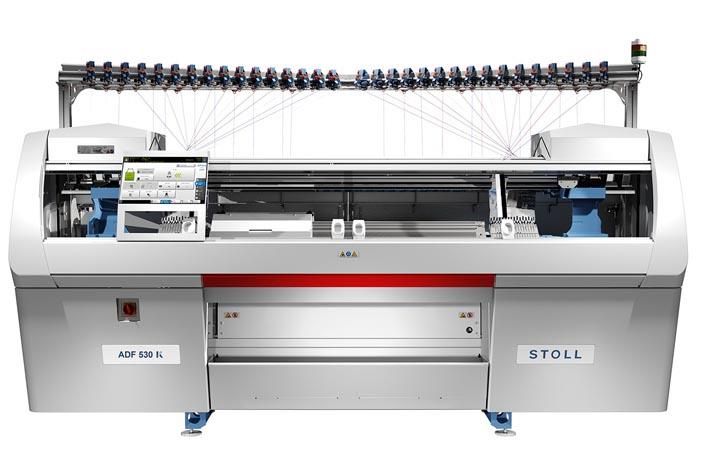Myant, pioneers in textile computing, has developed the Digital Textile Exchange (DTX), a digital manufacturing platform that connects the network of stakeholders in the advanced textile innovation value-chain to enable efficiency, quality and consistency. By this, DTX streamlines the process of going from idea to mass-scale production for advanced textiles.
DTX connects existing manufacturers, inventors, startups, and academia with knitting machines and textile producers all working under a new universal set of standards. This also reignites the culture of making and innovation that has been dwindling in the textile world for decades.Myant, pioneers in textile computing, has developed the Digital Textile Exchange (DTX), a digital manufacturing platform that connects the network of stakeholders in the advanced textile innovation value-chain to enable efficiency, quality and consistency. By this, DTX streamlines the process of going from idea to mass-scale production for advanced textiles.#
Fibres and textile systems are continually being prototyped with increasingly sophisticated functions applied to a diverse set of applications, including everything from sweat-sensing to wound care, wellness management, drug detection and delivery, shape shifting, pressure monitoring, brain-computer interface, electrical stimulation, heating, cooling and much more. The resultant consumer demand for actual connected textile products that incorporate these functions has risen in recent years, but the textile manufacturing ecosystem has not kept up with the new knowledge, materials, integration processes and standards needed to easily turn an innovative textile idea into scalable products.
Bringing advanced textiles innovations to the market at scale in the current ecosystem is an uphill battle that often results in brilliant ideas being snuffed out before they have a chance to thrive. The challenges faced in sourcing new types of functionalised yarns, finding manufacturing facilities that can knit and integrate textile electrodes at scale, and addressing the myriad of supply chain requirements not typically associated with conventional textile manufacturing makes innovation in advanced textiles practically impossible, even for the most well-resourced global textile companies.
At the core, finding partners in the supply chain that can help innovate is difficult due to a lack of universal standards. While rapid prototyping and advanced manufacturing exist for small-run or early concept stage applications, these prototypes typically cannot be scaled up without some critical compromises relating to sustainability or function due to the need for regulatory adherence and other factors.
Recognising these challenges, Myant created DTX as a digital textile manufacturing nexus in order to democratise access for manufacturers, innovators, start-ups and existing manufacturers. DTX offers a number of key features that lower barriers to scalable innovation.
DTX maps the demand for advanced textile manufacturing (ie production orders) with available production capacity across a global network of knitting machines. Knitting machines registered on the DTX will also need to comply with a new universal set of quality, materials, labour and environmental sustainability standards, thus ensuring that a product produced on a knitting machine in one country is the same as the same product produced on a different knitting machine in a different country. The standards to be set forth by DTX aim to bring all stakeholders into alignment with the specific regulatory requirements, engineering restrictions and systems integration demands for textiles in each specific industry (eg medical, automotive/aerospace, consumer goods, home/office furnishings, etc).
To support the proliferation of these new standards and to prepare a new generation of workers for a new type of work, Myant and the DTX will be working with academic institutions across the world to build academic nodes that support the development of talent for the textile computing industry.
By bringing stakeholders together and enforcing a universal standard, DTX will engender greater trust and transparency between stakeholders, enable textile product manufacturers to optimise for local demand in a more dynamic and efficient way, and ultimately bring the textile manufacturing industry into the sharing economy.
Fibre2Fashion News Desk (SV)
